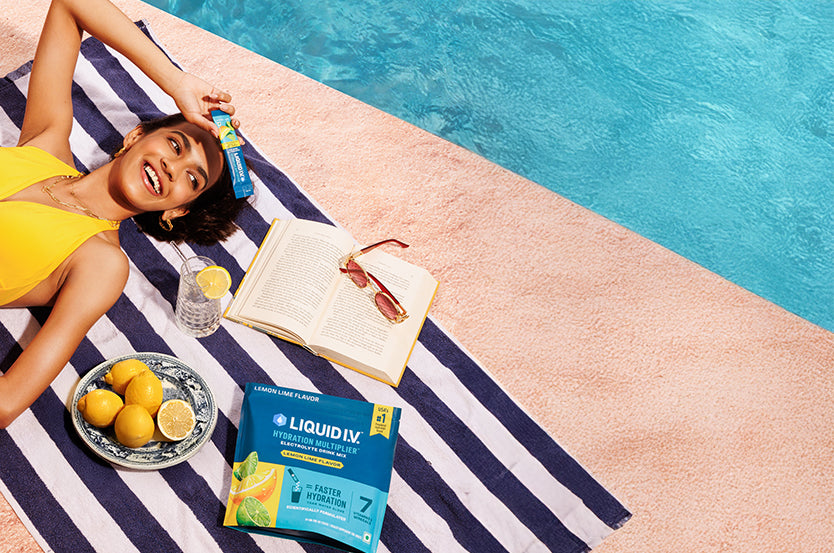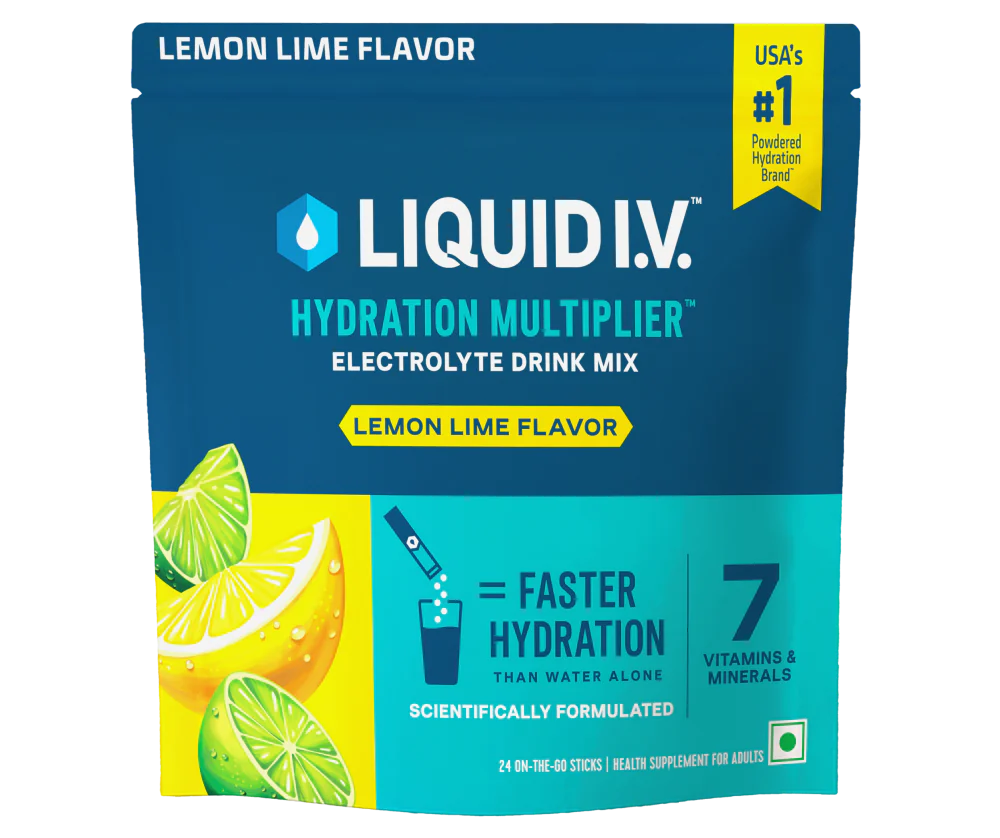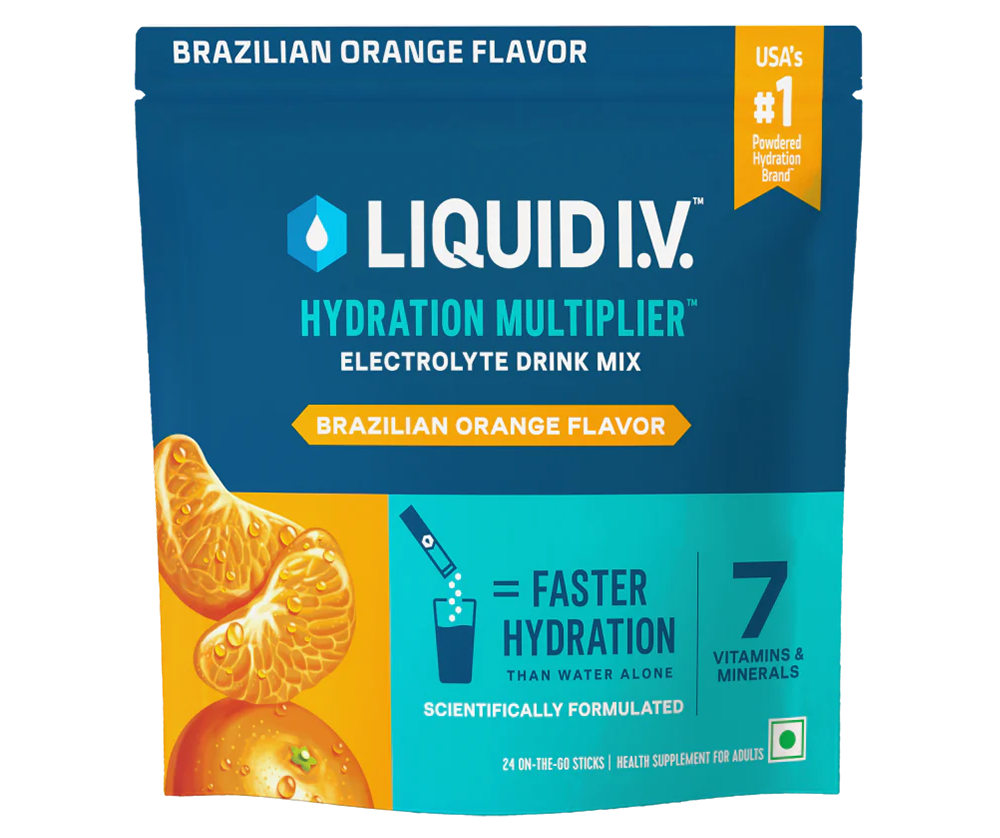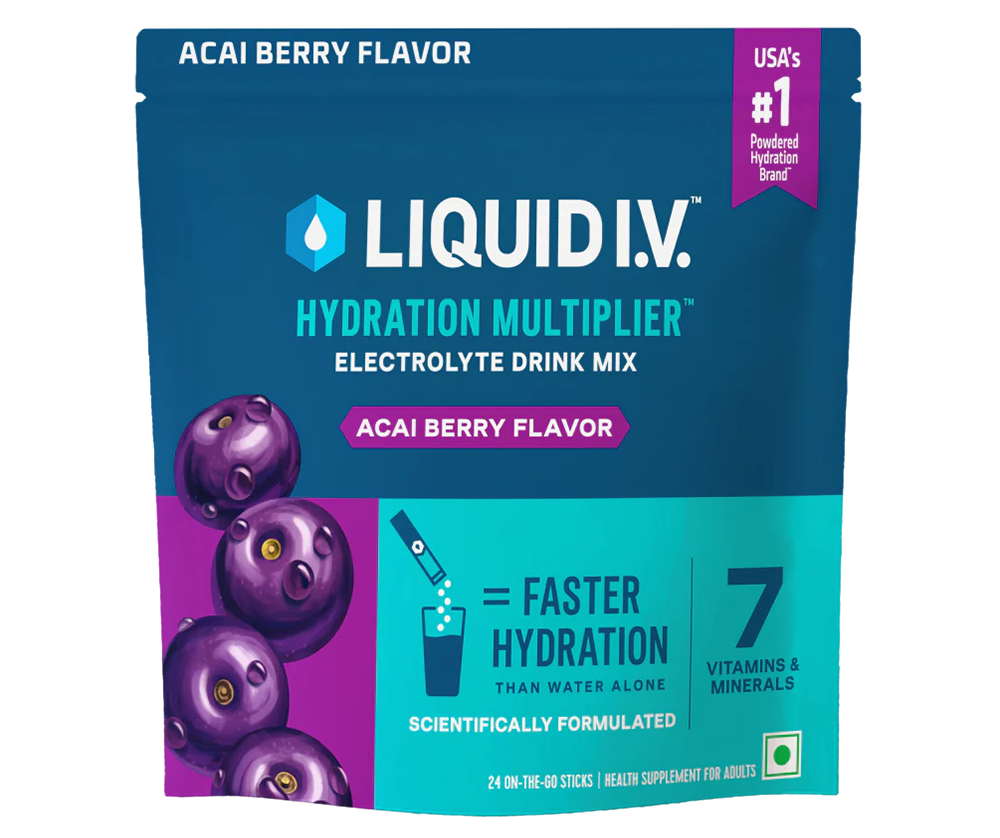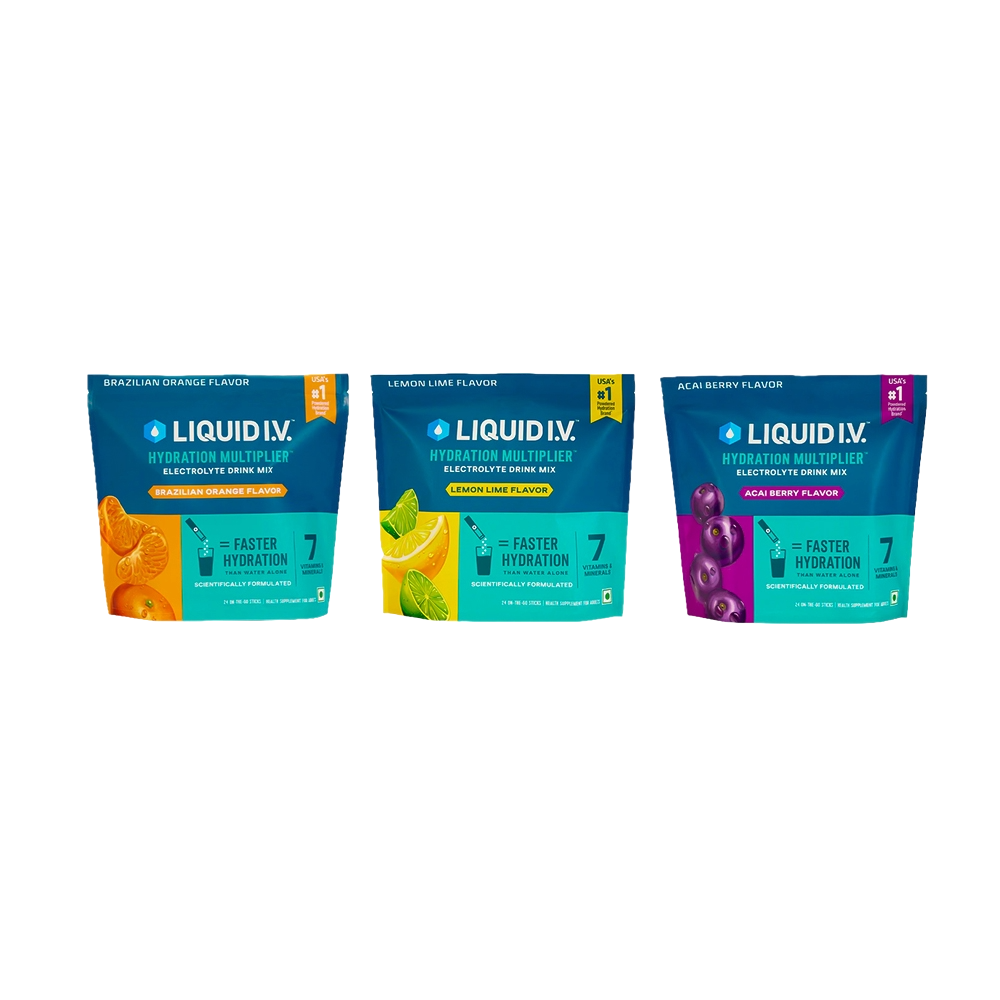Fruits High in Water Content That Help You Stay Hydrated
When the sun's blazing and you're feeling like a melted popsicle, staying hydrated is key to keeping your energy up. Staying adequately hydrated is not just about quenching thirst; it's a cornerstone of maintaining overall health and vitality. While reaching for a glass of water is our first instinct, nature offers delicious and effective alternatives: fruits loaded with water. These natural wonders not only contribute significantly to our daily fluid intake, with food accounting for nearly 20% of our hydration needs, but also provide a refreshing and enjoyable way to stay cool and energized throughout the day. (1) Let us dive into the refreshing power of nine awesome fruits, uncovering how their high-water content and rich nutritional profiles can help you beat the heat and maintain optimal hydration along with sipping on water.
Why Is Hydration Important? Unveiling the Crucial Role of Water for Your Health
Water is literally life, playing a major role in nearly every function within the human body. (2) Making up a significant 50% to 70% of our body weight, water is indispensable for maintaining overall health and well-being. One of its most critical roles is in regulating body temperature. Through mechanisms like sweating, water helps dissipate heat, keeping us cool and avoid overheating, especially during physical exertion or in warm environments.(3)
Beyond temperature regulation, water acts as a vital transport system, carrying oxygen and essential nutrients to our cells, fueling every bodily process. Simultaneously, it plays a crucial role in removing metabolic waste products and toxins from the body, keeping our kidneys and liver healthy. (3)
The importance of hydration extends to our cognitive well-being, influencing energy levels, mood, concentration, and even the quality of our sleep. Even mild dehydration can lead to feelings of fatigue, headaches, and difficulty concentrating, making it important to prioritize consistent fluid intake throughout the day. Adequate hydration is therefore intrinsically linked to our ability to stay cool and comfortable, as it supports the body's natural cooling mechanisms. (4)
Dive into Hydration: Fruits Packed with High Water Content
Nature's got our backs when it comes to staying hydrated - fruits. These vibrant and flavorful foods are not only naturally rich in water but also rich in essential vitamins, minerals, dietary fiber, and potent antioxidants. These nutrients work together with water to support various bodily functions, contributing to overall well-being beyond just meeting hydration.
Watermelon: Nature's Hydrating Superstar
Watermelon, aptly named, boasts an impressive water content of approximately 91-92%. (5) This juicy fruit is also a good source of key electrolytes like potassium and magnesium, which are vital for maintaining the body's fluid balance and supporting proper muscle function. The significant water and electrolyte content in watermelon makes it an ideal choice for rapid rehydration, especially after physical activity or exposure to heat. (6)
Strawberries (and All Berries!): Small Fruits, Big Hydration Benefits
Strawberries boast a high water content of around 91-92%, and the hydration benefits extend to other berries like blueberries, raspberries, and blackberries. (5) These small fruits are packed with vitamin C, a potent antioxidant that supports immune and skin health. They are also a good source of fiber, which aids digestion and helps regulate blood sugar levels. Berries are rich in other antioxidants, including anthocyanins, known for their anti-inflammatory properties. The high water and antioxidant content in berries make them excellent for both immediate hydration and long-term health, contributing to overall well-being. (7)
Citrus Fruits: Zesty Ways to Stay Hydrated and Replenish Electrolytes
Citrus fruits like oranges (around 86-87% water), grapefruit (around 88-91% water, and lemons/limes (around 88-89% water) are not only refreshing but also excellent sources of vitamin C. (5) Oranges, in particular, contain significant amounts of potassium, an essential electrolyte that helps regulate fluid balance and blood pressure. These fruits also contain other beneficial compounds like flavonoids, which possess antioxidant properties. Citrus fruits offer a tangy and refreshing way to hydrate, making them a good addition to your hydration routine to The combination of high water content, vitamin C, and electrolytes in citrus fruits makes them excellent for supporting the immune system and replenishing fluids. (8)
Cantaloupe: A Sweet and Hydrating Summer Treat
Cantaloupe boasts a water content of approximately 90%. (5) This melon is rich in vitamin A in the form of beta-carotene, vitamin C, potassium and other electrolytes that contribute to fluid balance. Cantaloupe's mild sweetness and high water content make it a refreshing and easily digestible hydrating option, suitable for various times of the day. (9)
Pineapple: Tropical Hydration with Added Health Perks
Pineapple offers a water content of approximately 85-87%. (5) It is a source of vitamin C, as well as manganese, potassium and the unique enzyme bromelain. (8) Its tropical flavor and juicy texture make it a refreshing and enjoyable way to boost hydration, especially in smoothies or as a snack. The presence of bromelain offers the added benefit of aiding digestion and reducing inflammation, making pineapple a multi-functional hydrating fruit. (10)
Pears: Gentle Hydration with Fiber and Nutrients
Pears have a water content ranging from approximately 83-88%. (5) They are a good source of both soluble and insoluble fiber, which aids digestion and promotes a feeling of fullness. Pears also contain vitamin C, folate, copper, and potassium. Their mild and sweet flavor makes them a pleasant way to increase fluid intake, and they are generally well-tolerated. The high fiber content in pears also contributes to satiety, potentially aiding in weight management alongside hydration.
Apples: A Crisp and Hydrating Everyday Choice
Apples have a water content of approximately 84-86%. (5) They are a good source of fiber, including pectin, which is beneficial for gut health and can help lower cholesterol levels. Apples also contain vitamins, including vitamin C, and various antioxidants like polyphenols. (7,8,11) Their crispness and sweetness make them an enjoyable way to increase fluid intake throughout the day, and their portability makes them a convenient hydrating snack.
Mango: Sweet Hydration with a Tropical Twist
Mangoes offer a water content of around 83%. (5) They are a good source of vitamins A and C, along with electrolytes and fiber. Their rich, sweet, and tropical flavor makes them a particularly enjoyable way to stay hydrated, especially during warmer months. The combination of vitamins and antioxidants in mango, along with its hydrating properties, makes it a beneficial fruit for both internal hydration and supporting healthy skin.(12)
Kiwi: A Tangy and Hydrating Nutrient Powerhouse
Kiwis have a water content ranging from approximately 83-90%. (5) They are exceptionally high in vitamin C, and also contain fiber, folate, potassium and copper. The tangy and slightly sweet flavor of kiwi offers a unique and refreshing way to contribute to daily fluid intake. The impressive nutrient profile of kiwi, particularly its high vitamin C content, makes it a hydrating fruit with significant antioxidant benefits.(13)
| Fruit | Approximate Content | Water | Key Hydrating Benefits (including electrolytes and other relevant nutrients) |
| Watermelon | 91-92% | High in potassium and magnesium (electrolytes). | |
| Strawberries | 91-92% | High in vitamin C, fiber, and antioxidants (anthocyanins). | |
| Citrus Fruits | 86-91% | Oranges, grapefruit, lemons, limes; rich in vitamin C and potassium (electrolytes), also contain other antioxidants. | |
| Cantaloupe | 90% | Good source of vitamin A (beta-carotene), vitamin C, and potassium; contains electrolytes. | |
| Pineapple | 85-87% | Contains vitamin C, manganese, potassium, and the enzyme bromelain. | |
| Pears | 83-88% | Good source of fiber, vitamin C, and potassium. | |
| Apples | 84-86% | Contains fiber (including pectin), vitamin C, and antioxidants (polyphenols). | |
| Mango | 83% | Good source of vitamins A and C, electrolytes, and fiber. | |
| Kiwi | 83-90% | Exceptionally high in vitamin C, also contains fiber and potassium. |
Conclusion: Embrace the Natural Coolness and Hydration of Water-Rich Fruits
Adding water-rich fruits to your daily diet is a simple yet powerful way to stay hydrated and keep cool, especially as temperatures rise. These natural treasures offer more than just hydration; they are packed with essential vitamins, minerals, antioxidants, and fiber that contribute to your overall health and well-being. By making a conscious effort to include a variety of these hydrating fruits in your daily routine, especially during warmer weather or periods of increased physical activity, you can enjoy a naturally sweet and refreshing way to stay hydrated. Plus, choosing fruits for hydration can also help reduce the intake of less healthy sugary drinks. Embrace the natural coolness and hydrating power of these water-rich fruits as a simple and enjoyable path to staying healthy and feeling your best.
Frequently Asked Questions (FAQs)
-
What are electrolytes in the diet and what role do they play in hydration?
Electrolytes are essential minerals, such as sodium, potassium, magnesium, calcium, chloride, phosphate, and bicarbonate, that carry an electric charge when dissolved in body fluids. They play a crucial role in maintaining the balance of fluids inside and outside of cells, regulating nerve and muscle function, controlling blood pressure, and facilitating the transport of nutrients. Certain fruits, like watermelon, citrus fruits, cantaloupe, mango, and kiwi, contain electrolytes such as potassium and magnesium, which aid in fluid balance.
-
What fruit contains the most water?
Watermelon generally contains one of the highest percentages of water among fruits, typically around 91-92%. Other fruits like strawberries and grapefruit also have very high water content. -
Which fruit is the most hydrating?
While watermelon boasts a high water content, the overall hydrating effectiveness of a fruit considers not only its water percentage but also the presence of electrolytes. Fruits like watermelon, citrus fruits, and cantaloupe contain a good balance of water and electrolytes, making them excellent choices for hydration. The combination of water and these essential minerals helps replenish fluids and maintain electrolyte balance in the body. -
What’s the best time to eat hydrating fruits?
Hydrating fruits can be enjoyed throughout the day as a refreshing snack, as part of your meals, or after physical activity. Consuming them before or after exercise can be particularly beneficial for replenishing lost fluids and electrolytes. -
Do hydrating fruits help with electrolyte balance?
Yes, many hydrating fruits contain electrolytes such as potassium and magnesium.7 Including these fruits in your diet can contribute to replenishing electrolytes lost through sweat and help maintain a healthy electrolyte balance in the body. However, a balanced diet rich in various minerals is essential for overall electrolyte balance.

